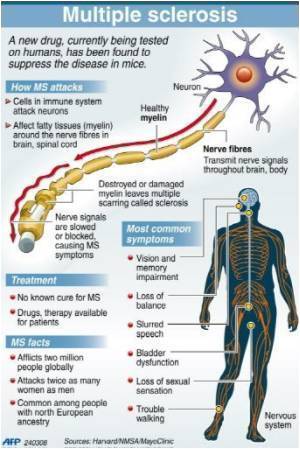Successfully treating and reversing the effects of multiple sclerosis (MS), may be possible one day using a drug originally developed to treat chronic pain, says Professor

Lisa Loram, a senior research associate spearheaded the project in Watkins' laboratory.
MS is an inflammatory disease where the body's immune system attacks a protective sheath called myelin that encompasses nerves in the spinal cord and brain. As the disease progresses, the myelin develops lesions, or scars, that cause permanent neurological problems.
Watkins, Loram and their colleagues hope to use spinal cord and brain-imaging technology to extend their studies to determine if lesions are being healed in rats that received an ATL313 injection.
"If we have a drug that is able to heal these lesions, this treatment could be a major breakthrough in how we treat the symptoms of MS in the future," she said.
The findings will be presented at the Society for Neuroscience's annual meeting held in San Diego this week.
Advertisement













